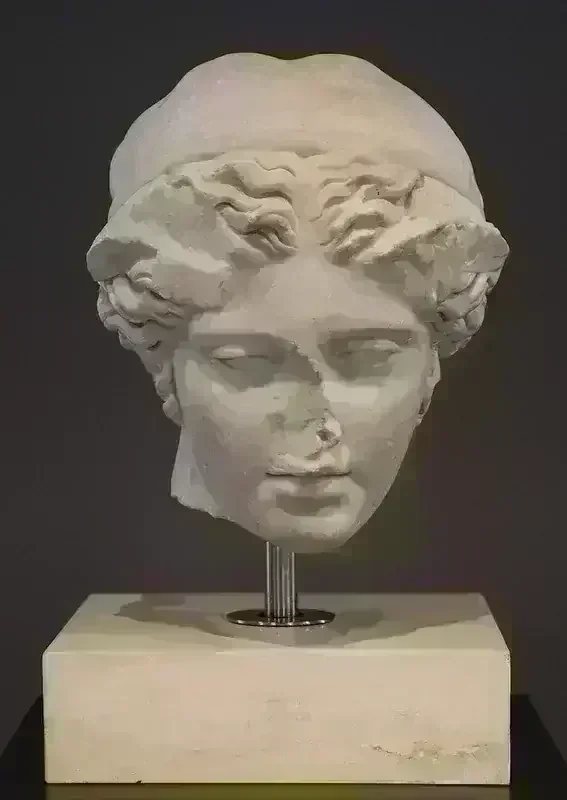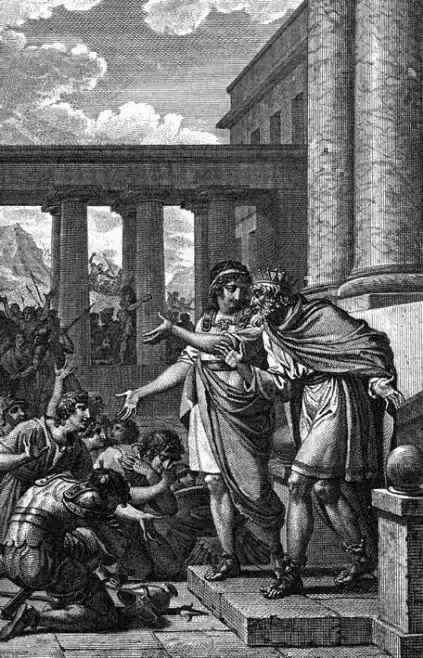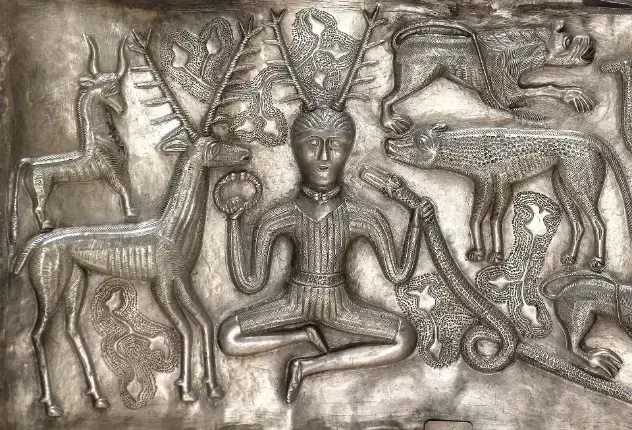Hypnos

In Greek mythology, Hypnos (/ˈhɪpnɒs/; Ancient Greek: Ὕπνος, 'sleep'), also spelled Hypnus, is the personification of sleep. His Roman equivalent is Somnus. His name forms the root of the word hypnosis.
According to Pausanias, Hypnos was the most beloved friend of the Muses. Dutch linguist Robert S. P.
Beekes suggests that the god's name derives from the Proto-Indo-European root *sup-no- meaning 'sleep'. Hypnos is typically described as the son of Nyx ("The Night") without a father, though occasionally her consort Erebus ("The Darkness") is mentioned as his father. His twin brother is Thanatos ("Death").
Both siblings reside in the underworld (Hades). According to legend, Hypnos lived in a vast cave from which the river Lethe ("Forgetfulness") flows and where night and day converge. This region is known as the Land of Dreams.
His bed is crafted from ebony, and poppies and other sleep-inducing plants grow at the cave entrance. Neither light nor sound ever penetrate his grotto. Homer places him on the island of Lemnos, which later became known as his personal dream island.
He is portrayed as a peaceful and kind god who assists humans in need and, through their sleep, claims half of their lives. Hypnos dwelled beside his twin brother Thanatos in the underworld, beyond the reach of the sun's rays. In Hesiod's Theogony, Hypnos appears as one of Nyx's children, born without a father.
In Roman genealogies, he is described as the son of Erebus (Darkness) and Nox (Night, the Roman equivalent of Nyx). The Iliad depicts Nyx as a formidable and mighty goddess whom even Zeus fears to approach. His wife, Pasithea, is among the youngest of the Charites and was promised to him by Hera, the goddess of marriage and birth.


